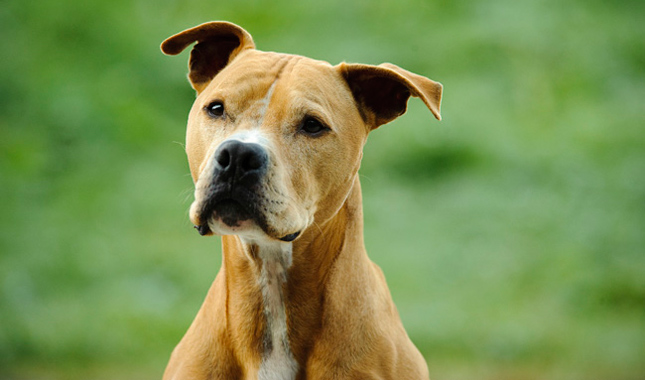Whippet
Published on June 20, 2011
Breed Details
- Height: 18 to 22 inches at the shoulder
- Weight: 25 to 35 pounds
Breed Characteristics
Adaptability
Trainability
Grooming
Apartament Friendly
Child Friendly
Shedding Level
Dog Friendly
Exercise Needs
Territorial
Barking Tendencies
Health Issues
Social Needs
Energy Level
Affectionate
Watchdog Instincts
Cat Friendly
Intelligence
Stranger Friendly
The Whippet was created in the late 18th century by crossing small Greyhounds with various terriers to create a breed that could course rabbits and kill small vermin. When they weren’t betting on whose Whippet could kill the most rats, workingmen, such as miners, often raced their dogs, giving rise to the nickname “poor man’s racehorse.” Today, the Whippet is still a fast and effective hunter, but at home, he’s a calm and quiet companion who loves nothing more than snuggling on the sofa.
At first glance, the Whippet seems like the perfect dog — he’s friendly to guests and strangers, doesn’t mind snoozing the day away, has a manageable size, and doesn’t bark excessively. In other words, he may alert you that someone is at the door, but he’s far from being a true guard dog. Whippets prefer to be part of a pack, rather than an only dog, so they become very attached to their families and like being around kids and other dogs. Whippets are generally easy to housetrain, although they’re often not amused by the idea of going outside in the rain or snow.
So what’s the downside? The Whippet’s muscular yet graceful build makes him an excellent jumper and runner. If he spots something in motion, he’ll take off after it — no matter how well trained you think he is, or how frantically you call after him. For this reason, Whippets should always be walked on a leash, and they should never be allowed to roam free, unless they are in an enclosed area. Tip: With this breed, an underground electronic fence doesn’t count as a safe enclosure — the Whippet will simply dart through it. So plan to install a fence that’s at least five feet tall.
While the Whippet is often described as gentle, this word doesn’t apply to a Whippet in pursuit of cats or other small, furry creatures. If you have bunnies or hamsters, you may want to think twice about bringing a Whippet into your home. Whippet puppies raised with other pets can coexist peacefully, but instinct is a powerful thing, so it’s essential to keep them separated when you’re not around to supervise.
Like most dogs, Whippets can become bored and destructive when left to their own devices, especially if they don’t have other dogs to keep them company or if they don’t receive enough attention from family members. To counteract this, aim to walk your Whippet several times a day. You can consider taking him to a dog park at least twice a week, so he can really run. But be aware that small dogs may resemble prey to him.
Whippets love soft, cushy furniture — beds, sofas, and chairs quickly become their domain. Much like the average cat, you won’t have much luck in training your Whippet to stay off the furniture. Speaking of training, Whippets are, well, whip-smart — but that doesn’t mean they’re easy to train. They tend to be independent thinkers, but they can be swayed by positive reinforcement techniques that involve food rewards. A Whippet isn’t likely to garner High in Trial during obedience competitions, but he can excel at such canine sports as lure coursing and agility.
When it comes to maintenance, Whippets are known for their easy-care coats. They just need a rubdown with a chamois (not the one you use for your car, which may have chemicals on it), as well as regular nail trimming, tooth brushing, and ear cleaning, to stay clean and in good condition. If you have allergies to dogs, the Whippet may seem like a good choice because of his short coat, but he’s not a non-allergenic breed. In fact, no dog is — an animal’s dander triggers allergic reactions, not its fur. Despite their trim coats, Whippets still shed, so you will find hair on your clothing and furniture.
With his delicate, bony body, it goes without saying that the Whippet needs to live indoors, preferably with access to plush furniture or bedding. He isn’t built to withstand cold temps as an outdoor dog, and besides, he much prefers the love of his family to the backyard.
Other Quick Facts
- Whippets used to be known as snap dogs — for the way they snapped up rabbits and rats.
- Whippet puppies are cunning little creatures, so you’ll benefit from signing up your pup for obedience classes at an early age; 10 to 12 weeks is highly recommended.
- The breed is revered for its graceful, athletic build, which allows the Whippet to clock speeds of up to 35 m.p.h. Read: This is not a dog that should be allowed to run off-leash in open spaces.
The History of Whippets
The Whippet is a miniature version of the Greyhound, but he was not bred down directly from the Greyhound. Bred by working-class Englishmen who bet on how many rats and rabbits each dog could kill, the Whippet was probably achieved by crossing small Greyhounds with Manchester Terriers and other fast, game terrier breeds. The dogs were eventually raced for sport in Massachusetts and Maryland, where they became known as the poor man’s Greyhound.
Whippets were recognized by the American Kennel Club in 1888; the first dog registered was a Whippet named Jack Dempsey. The Whippet now ranks 60th among the breeds recognized by the AKC.
Whippet Temperament and Personality
The perfect Whippet doesn’t come ready-made from a breeder. Any dog can develop obnoxious levels of barking, digging, and other undesirable behaviors if he’s bored or unsupervised. A young Whippet will test you to see what he can get away with, so start training your puppy early. If possible, get him into puppy kindergarten class by the time he is 10 to 12 weeks old, and socialize, socialize, socialize. However, be aware that many puppy training classes require certain vaccines (like kennel cough) to be up to date, and many veterinarians recommend limited exposure to other dogs and public places until puppy vaccines (including rabies, distemper and parvovirus) have been completed. In lieu of formal training, you can begin training your puppy at home and socializing him among family and friends until puppy vaccines are completed.
The Whippet is a rare breed: They are beautiful to look at and really calm house pets. With an average weight of 20 pounds, they’re also a nice size — not too big and not too small. Some are sensitive, and some are outgoing, but most of them are sweet and affectionate, giving you a gentle nudge with their nose to get your attention.
These dogs are also very clean and easy to housetrain, unless it’s rainy or cold outside. If you live in a region with inclement weather, walk your Whippet on a strict schedule, so he potties in the appropriate place outdoors.
Sounds like the perfect dog, right? Although adult Whippets are quiet creatures, it takes them at least three years to get to that point. Whippet puppies, on the other hand, run, dig, bark, and chew — all at warp speed. Mature Whippets still like to run, but they need to roam in an enclosed space because they lack street-sense. And since they’re sight hounds, they can spot furry things at a distance that you may not even notice.
This is an intelligent dog, but he’s more likely to use his smarts to his advantage — he’s a pro at opening doors and drawers — rather than obey your commands. His patience with children also has its limits. The Whippet is fond of quiet, well-behaved kids, but he’s not a fan of toddlers who grab at his ears and tail. This is not a love everyone kind of dog. Even within his own family, he may choose a single person as his favorite — and tolerate everyone else.
What You Need to Know About Whippet Health
All dogs have the potential to develop genetic health problems, so it’s important to choose your breeder wisely. Whippets breeders should know about several conditions, including corneal dystrophy, progressive retinal atrophy, hypothyriodism, and congenital deafness. You should also ask the breeder to show documentation of certifications from the Orthopedic Foundation for Animals (OFA), and an eye clearance from the Canine Eye Registration Foundation (CERF).
The American Whippet Club participates in the Canine Health Information Center (CHIC), a health database. Before a Whippet can be issued a CHIC number, breeders must submit eye test results annually from CERF; an annual OFA heart evaluation by a board-certified cardiologist, including an echocardiogram; and an evaluation for congenital deafness. The dog must also be in the Whippet Health Foundation database. Breeders must agree to have all test results, positive or negative, published in the CHIC database, which can be accessed by anyone who wants to check the health of a puppy’s parents.
Careful breeders screen their dogs for genetic disease, and only breed the best-looking specimens, but sometimes Mother Nature has other ideas and a puppy can develop one of these diseases. In most cases, he can still live a good life, thanks to advances in veterinary medicine. But be aware that Whippets can be sensitive to anesthesia because of their low fat ratio, so make sure that your veterinarian is familiar with this quirk of the breed. And remember that you have the power to protect your Whippet from one of the most common health problems: obesity. Keeping him at an appropriate weight is a simple way to extend your Whippet’s life.
The Basics of Whippet Grooming
Whippets are one of the easiest breeds to groom: Give them a once over with a rubber hound mitt and they’re good to go; baths are rarely necessary. And although they don’t shed as heavily as other breeds, you’ll still want to keep a lint roller on hand. The rest is basic care: Trim your Whippet’s nails as needed, usually every week or two, and brush his teeth regularly with a vet-approved pet toothpaste for good overall health and fresh breath.
Finding a Whippet
Whether you want to go with a breeder or get your dog from a shelter or rescue, here are some things to keep in mind.
Choosing a Whippet Breeder
Selecting a respected breeder is a great way to find the right puppy. Reputable breeders will welcome questions about temperament and health clearances, as well as explain the history of the breed and what kind of puppy makes for a good pet. Don’t be shy about describing exactly what you’re looking for in a dog — breeders interact with their puppies daily and can make accurate recommendations once they know something about your lifestyle and personality.
Lots of breeders have websites, so how can you tell who’s good and who’s not? Red flags to look out for: multiple litters on the premises, puppies always being available, having your choice of any puppy, and being offered the option to pay online with a credit card. Breeders who sell puppies at a lower price “without papers” are unethical and should be reported to the American Kennel Club. You should also bear in mind that buying a puppy from a website that offers to ship the dog immediately can be a risky venture — it leaves you no recourse if what you get isn’t exactly what you expected.
To start your search, check out the website of the American Whippet Club and choose a breeder who has agreed to abide by the club’s code of ethics, which prohibits the sale of puppies through pet stores and calls for the breeder to obtain recommended health clearances before breeding.
Whether you’re planning to get your new best friend from a breeder, a pet store, or another source, don’t forget that old adage “let the buyer beware”. Disreputable breeders and facilities that deal with puppy mills can be hard to distinguish from reliable operations. There’s no 100% guaranteed way to make sure you’ll never purchase a sick puppy, but researching the breed (so you know what to expect), checking out the facility (to identify unhealthy conditions or sick animals), and asking the right questions can reduce the chances of heading into a disastrous situation. And don’t forget to ask your veterinarian, who can often refer you to a reputable breeder, breed rescue organization, or other reliable source for healthy puppies.
The cost of a Whippet puppy varies depending on the breeder’s locale, the sex of the puppy, the titles that the puppy’s parents have, and whether the puppy is best suited for the show ring or a pet home. Puppies should be temperament tested, vetted, dewormed, and socialized to give them a healthy, confident start in life. If you put as much effort into researching your puppy as you would when buying a new car, it will save you money in the long run.
Before you decide to buy a puppy, consider whether an adult Whippet may better suit your lifestyle. Puppies are loads of fun, but they require a good deal of time and effort before they grow up to be the dog of your dreams. An adult may already have some training, and he’ll probably be less active, destructive, and demanding than a puppy. With an adult, you know more about what you’re getting in terms of personality and health and you can find adults through breeders or shelters. If you are interested in acquiring an older dog through breeders, ask them about purchasing a retired show dog or if they know of an adult dog who needs a new home. If you want to adopt a dog, read the advice below on how to do that.
Adopting a Dog From a Whippet Rescue or Shelter
There are many great options available if you want to adopt a dog from an animal shelter or breed rescue organization. Here is how to get started.
1. Use the Web
Sites like Petfinder.com and Adopt-a-Pet.com can have you searching for a Whippet in your area in no time flat. The site allows you to be very specific in your requests (housetraining status, for example) or very general (all the Whippets available on Petfinder across the country). AnimalShelter.org can help you find animal rescue groups in your area. Also some local newspapers have “pets looking for homes” sections you can review.
Social media is another great way to find a dog. Post on your Facebook page that you are looking for a specific breed so that your entire community can be your eyes and ears.
2. Reach Out to Local Experts
Start talking with all the pet pros in your area about your desire for a Whippet. That includes vets, dog walkers, and groomers. When someone has to make the tough decision to give up a dog, that person will often ask her own trusted network for recommendations.
3. Talk to Breed Rescue
Most people who love Whippets love all Whippets. That’s why breed clubs have rescue organizations devoted to taking care of homeless dogs. The American Whippet Club's rescue networkcan help you find a dog that may be the perfect companion for your family. You can also search online for other Whippet rescues in your area.
The great thing about breed rescue groups is that they tend to be very upfront about any health conditions the dogs may have and are a valuable resource for advice. They also often offer fostering opportunities so, with training, you could bring a Whippet home with you to see what the experience is like.
4. Key Questions to Ask
You now know the things to discuss with a breeder, but there are also questions you should discuss with shelter or rescue group staff or volunteers before you bring home a dog. These include:
What is his energy level?
How is he around other animals?
How does he respond to shelter workers, visitors, and children?
What is his personality like?
What is his age?
Is he housetrained?
Has he ever bitten or hurt anyone that they know of?
Are there any known health issues?
Wherever you acquire your Whippet, make sure you have a good contract with the seller, shelter or rescue group that spells out responsibilities on both sides. Petfinder offers an Adopters Bill of Rights that helps you understand what you can consider normal and appropriate when you get a dog from a shelter. In states with “puppy lemon laws,” be sure you and the person you get the dog from both understand your rights and recourses.
Puppy or adult, take your Whippet to your veterinarian soon after adoption. Your veterinarian will be able to spot problems, and will work with you to set up a preventive regimen that will help you avoid many health issues.












